Tossing and Turning All Night? Feeling Drained and Foggy During the Day?

If you’re nodding your head in agreement, you’re not alone. Millions of people struggle with sleep issues, robbing them of the rest and rejuvenation their bodies crave. But what if you could harness the power of nature to reclaim your sleep and wake up feeling refreshed and revitalized?
- Herbal Remedies: Your Ticket to Dreamland
- Why Choose Herbal Remedies for Sleep?
- Understanding Sleep and Relaxation: The Foundations of Well-Being
- What Happens When You Don’t Get Enough Sleep: The Domino Effect
- Top Herbal Remedies for Sleep and Relaxation
- Passionflower: Calm Your Mind, Body, and Spirit
- How to Use Herbal Remedies for Sleep and Relaxation
- Supplements: Convenient and Concentrated
- Lifestyle Tips for Better Sleep: Beyond the Herbal Remedies
- Relaxation Techniques: Unwind and De-Stress
- Diet and Exercise: Fueling Your Sleep
- Embrace Sweet Dreams and Serene Days with Herbal Remedies
Herbal Remedies: Your Ticket to Dreamland
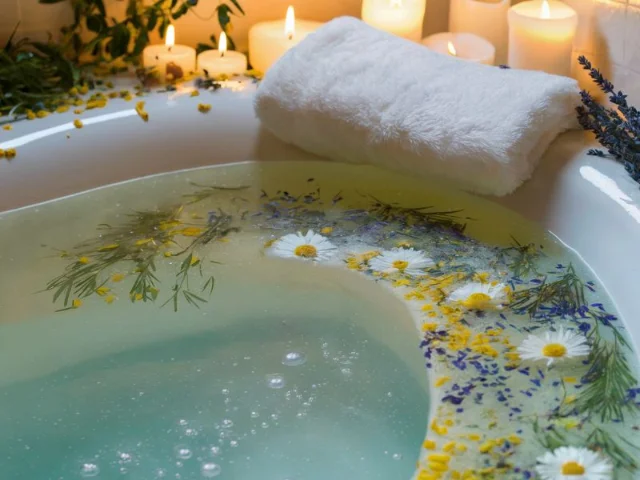
Enter herbal remedies – nature’s gentle lullaby for a weary mind and body. These time-tested botanical treasures offer a safe and effective alternative to sleep medications, helping you unwind, relax, and drift off into peaceful slumber.
Unlocking the Power of Plants for Sleep and Relaxation
In this comprehensive guide, we’ll delve into the world of herbal remedies for sleep and relaxation, exploring:
- The science-backed benefits of calming herbs like chamomile, lavender, and valerian root.
- The diverse forms of herbal remedies, from soothing teas to aromatic essential oils.
- Practical tips and recipes for incorporating these natural sleep aids into your daily routine.
Why Choose Herbal Remedies for Sleep?

Unlike prescription sleep medications, which can come with unwanted side effects and dependency risks, herbal remedies offer a gentler, more holistic approach to sleep. They work in harmony with your body’s natural rhythms, promoting relaxation, reducing anxiety, and easing you into a restful state.
Reclaim Your Sleep, Reclaim Your Life
Quality sleep is not a luxury; it’s a necessity. It’s essential for physical and mental health, energy levels, mood, and overall well-being.
When you prioritize sleep and relaxation, you’re not just investing in a good night’s rest; you’re investing in a healthier, happier, and more vibrant life.
Ready to embark on a journey towards deeper slumber and ultimate relaxation? Let’s explore the power of herbal remedies and discover how they can transform your sleep and your life.
Understanding Sleep and Relaxation: The Foundations of Well-Being
Before we dive into the wonderful world of herbal remedies, let’s take a moment to appreciate the essential duo of sleep and relaxation. Think of them as the yin and yang of a healthy life – interconnected and indispensable. Understanding their importance and how they work together will set the stage for your journey towards deeper slumber and ultimate tranquility.
The Importance of Sleep: Your Body’s Reset Button

Sleep isn’t just about feeling rested; it’s a non-negotiable pillar of health. During sleep, your body embarks on a series of essential tasks:
- Cell repair and growth: Your cells regenerate and repair themselves, allowing your body to heal and function optimally.
- Hormone regulation: Sleep plays a crucial role in balancing hormones that regulate appetite, stress, and metabolism.
- Brain function: Sleep is essential for memory consolidation, learning, and cognitive function. It’s like hitting the “save” button on your day’s experiences and insights.
- Immune function: A good night’s sleep strengthens your immune system, helping you fight off infections and illnesses.
In essence, sleep is your body’s reset button, allowing it to recharge, repair, and prepare for the day ahead.
What Happens When You Don’t Get Enough Sleep: The Domino Effect
Skimping on sleep isn’t just about feeling groggy; it can trigger a cascade of negative consequences for your health and well-being.
Sleep deprivation has been linked to:
- Fatigue and low energy: Feeling constantly tired and sluggish, even after a full night’s sleep.
- Mood swings and irritability: Increased risk of anxiety, depression, and other mood disorders.
- Impaired concentration and memory: Difficulty focusing, making decisions, and recalling information.
- Weakened immune system: Increased susceptibility to colds, flu, and other infections.
- Increased risk of chronic diseases: Sleep deprivation has been associated with an increased risk of obesity, heart disease, diabetes, and even certain types of cancer.

In short, neglecting sleep is like neglecting your car’s maintenance – it might seem fine for a while, but eventually, the lack of care will catch up with you and lead to breakdowns.
The Role of Relaxation in Sleep: Preparing for Slumber
Relaxation is the bridge that leads to restful sleep. When you’re stressed or anxious, your body releases cortisol, the stress hormone, which can interfere with sleep. By incorporating relaxation techniques into your daily routine, you can lower cortisol levels, calm your mind, and prepare your body for slumber.
Relaxation techniques can include:
- Deep breathing exercises: Slow, deep breaths activate the parasympathetic nervous system, responsible for rest and relaxation.
- Meditation: Mindfulness meditation helps quiet the mind and reduce anxiety.
- Progressive muscle relaxation: This technique involves systematically tensing and relaxing different muscle groups to release physical tension.
- Warm baths: A warm bath before bed can help relax your muscles and prepare your body for sleep.

By incorporating relaxation into your daily routine, you’re not only improving your sleep but also enhancing your overall well-being. It’s a win-win!
Top Herbal Remedies for Sleep and Relaxation: Nature’s Gentle Lullabies
Ready to discover the herbal allies that can lull you into a peaceful slumber and melt away stress? Let’s dive into the world of nature’s most renowned sleep and relaxation aids. These calming herbs have been used for centuries to promote tranquility, ease anxiety, and improve sleep quality.

Chamomile: Your Cup of Tranquility
Chamomile, with its delicate apple-like scent and gentle flavor, is a beloved bedtime beverage for many. This humble flower packs a powerful punch when it comes to relaxation and sleep.
- Calming Effects: Chamomile contains apigenin, a flavonoid that binds to benzodiazepine receptors in the brain, promoting relaxation and reducing anxiety.
- Sleep Aid: Studies have shown that chamomile extract may improve sleep quality and reduce the time it takes to fall asleep.
- How to Use: Enjoy chamomile as a tea before bed or try chamomile essential oil in a diffuser or bath for aromatherapy.
If you’re looking for a gentle, soothing remedy to help you unwind and prepare for sleep, chamomile is an excellent choice.
Lavender: Aromatic Elixir of Relaxation
Lavender, with its intoxicating fragrance and calming properties, is a true relaxation powerhouse. This versatile herb can be used in various ways to promote sleep and reduce stress.
- Aromatherapy: The aroma of lavender essential oil has been shown to decrease heart rate and blood pressure, promoting a sense of calm and relaxation. Diffuse lavender oil in your bedroom or add a few drops to your pillow for a restful night’s sleep.
- Tea and Bath: Enjoy a cup of lavender tea before bed or add a few drops of lavender oil to a warm bath for a soothing and relaxing experience.
- Topical Application: Lavender oil can be diluted with a carrier oil and applied topically to the temples or wrists to promote relaxation.
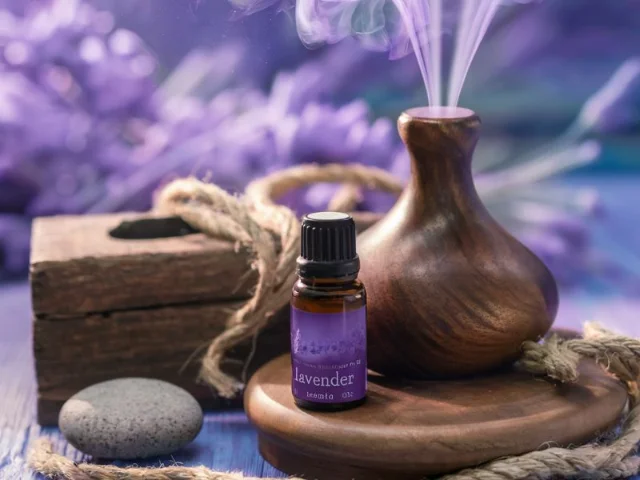
Lavender’s calming effects are not just anecdotal – research suggests that it may be as effective as some pharmaceutical medications for anxiety and insomnia.
Valerian Root: Nature’s Sedative
Valerian root, with its earthy aroma and sedative properties, has been used for centuries as a natural sleep aid. This powerful herb can help you fall asleep faster and enjoy deeper, more restful sleep.
- Sleep-Inducing Effects: Valerian root is believed to increase the levels of GABA, a neurotransmitter that promotes relaxation and sleep, in the brain.
- Insomnia Relief: Studies have shown that valerian root may be effective in reducing the time it takes to fall asleep and improving sleep quality in people with insomnia.
- Cautions: Valerian root can cause drowsiness, so it’s best taken at night. It may also interact with certain medications, so consult with your doctor before using it.
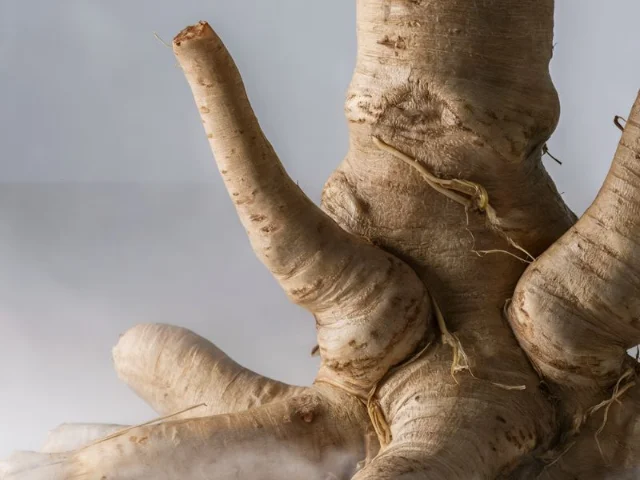
Valerian root is a potent natural sleep aid, but it’s important to use it with caution and follow recommended dosages.
Passionflower: Calm Your Mind, Body, and Spirit
Passionflower, a beautiful vine with intricate flowers, is a versatile herb with a long history of use for anxiety, insomnia, and pain relief.
- Calming Effects: Passionflower contains flavonoids and alkaloids that have been shown to have a calming and anxiety-reducing effect.
- Sleep Aid: Passionflower may improve sleep quality and reduce the time it takes to fall asleep.
- Other Benefits: Passionflower may also help with menopausal symptoms, ADHD, and pain relief.

Passionflower is a gentle yet effective herb for promoting relaxation and sleep. It can be enjoyed as a tea, tincture, or capsule.
Lemon Balm: Uplift Your Mood and Ease Your Mind
Lemon balm, with its refreshing citrusy scent, is a delightful herb that can both uplift your mood and ease your mind.
- Mood-Boosting: Lemon balm has been shown to reduce anxiety, improve mood, and enhance cognitive function.
- Sleep Aid: The calming effects of lemon balm can also help promote relaxation and improve sleep quality.
- Antiviral Properties: Lemon balm has antiviral properties and may be helpful in treating cold sores caused by the herpes simplex virus.
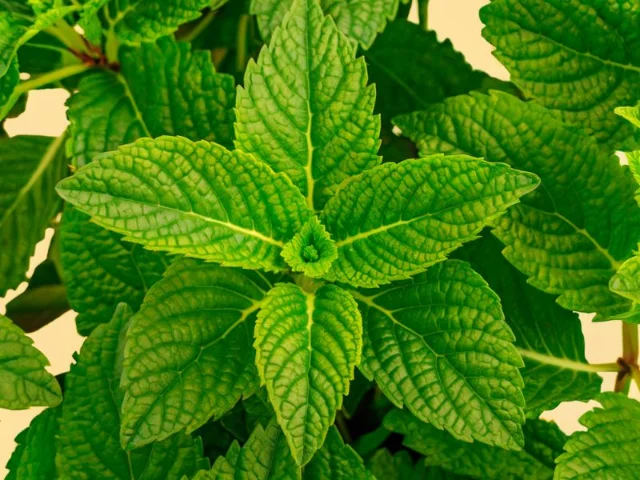
Lemon balm can be enjoyed as a tea, tincture, or capsule, or used topically to treat cold sores. It’s a versatile herb with a wide range of potential benefits.
How to Use Herbal Remedies for Sleep and Relaxation: Your Toolkit for Tranquility
Now that you’ve met some of nature’s most potent sleep-inducing allies, let’s explore the best ways to incorporate them into your routine for optimal relaxation and restful slumber. From brewing a soothing cup of tea to inhaling calming aromas, there are various methods to harness the power of these herbal remedies.
Teas: Sip Your Way to Serenity

Herbal teas are a simple and enjoyable way to invite relaxation into your evenings. Not only are they delicious and hydrating, but they also offer a ritualistic experience that can signal to your body and mind that it’s time to unwind.
To prepare a soothing sleep-inducing tea, steep 1-2 teaspoons of dried herbs in a cup of hot water for 5-10 minutes. Popular choices include chamomile, lavender, passionflower, and lemon balm. You can enjoy these teas individually or create your own custom blend for a personalized experience. For a touch of sweetness, add a drizzle of honey or a sprinkle of cinnamon.
For optimal results, aim to drink your herbal tea 30-60 minutes before bed. The warm liquid and calming properties of the herbs can help ease your body and mind into a restful state.
Essential Oils: Aromatic Allies for Sleep and Relaxation

Essential oils are highly concentrated extracts from plants, capturing their aromatic essence and therapeutic properties. These potent oils can be used in aromatherapy to promote relaxation, reduce stress, and improve sleep quality.
One of the most popular ways to use essential oils is through a diffuser. Simply add a few drops of your chosen oil (lavender, chamomile, or bergamot are excellent choices for sleep) to the diffuser and let the calming aroma fill your room.
You can also add a few drops of essential oil to a warm bath for a soothing and aromatic experience. Alternatively, dilute a few drops of essential oil in a carrier oil (like coconut or almond oil) and apply it to your temples, wrists, or chest for a more direct effect.
Important Note: Always use caution when handling essential oils. They are highly concentrated and should be diluted before applying them to your skin. Pregnant or breastfeeding women should consult with their healthcare provider before using essential oils.
Supplements: Convenient and Concentrated

If you’re looking for a more concentrated dose of herbal goodness, supplements are a convenient option. Herbal supplements come in various forms, including capsules, tablets, and tinctures. They offer a standardized dose of active ingredients, making it easier to control your intake.
When choosing herbal supplements, opt for reputable brands that adhere to good manufacturing practices (GMP) and have been third-party tested for purity and potency. Be sure to follow the recommended dosage on the product label and consult with your healthcare provider if you have any concerns.
By incorporating these various methods into your routine, you can customize your approach to herbal remedies and find what works best for you. Remember, the goal is to create a relaxing and consistent bedtime ritual that signals to your body and mind that it’s time to unwind and prepare for a restful night’s sleep.
Lifestyle Tips for Better Sleep: Beyond the Herbal Remedies
While herbal remedies are fantastic tools for promoting sleep and relaxation, they’re just one piece of the puzzle. A holistic approach to sleep also involves creating a sleep-friendly environment, adopting healthy habits, and finding ways to manage stress and anxiety. Let’s explore some lifestyle tips that can complement your herbal remedies and pave the way for truly restorative slumber.
Sleep Hygiene: Creating Your Sleep Sanctuary
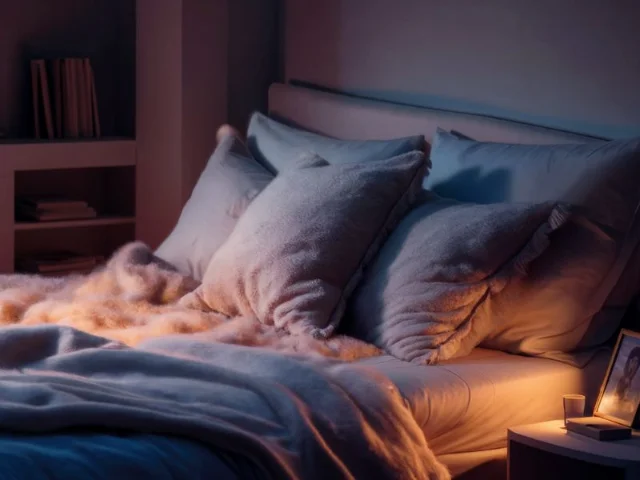
Think of your bedroom as your sleep sanctuary. It should be a peaceful haven that invites relaxation and promotes deep, restful sleep. Here’s how you can optimize your sleep environment:
- Keep it cool, dark, and quiet: The ideal temperature for sleep is between 60-67°F (15-19°C). Block out any light sources and minimize noise distractions.
- Invest in a comfortable mattress and pillows: Your bed should be a place you look forward to sinking into each night. Choose a mattress and pillows that provide adequate support and comfort for your body.
- Declutter your bedroom: A cluttered space can create a cluttered mind. Keep your bedroom tidy and organized to promote a sense of calm and relaxation.
- Limit electronic devices: The blue light emitted from screens can suppress melatonin, a hormone that regulates sleep. Avoid screens for at least an hour before bed.
By creating a sleep-friendly environment, you’ll be setting the stage for a peaceful and rejuvenating slumber.
Relaxation Techniques: Unwind and De-Stress
Stress and anxiety are major sleep disruptors. Incorporating relaxation techniques into your evening routine can help calm your mind, reduce tension, and prepare you for a restful night’s sleep.

Here are a few techniques to try:
- Deep breathing exercises: Take slow, deep breaths, focusing on the rise and fall of your abdomen.
- Meditation: Even a few minutes of mindfulness meditation can help quiet the mind and reduce racing thoughts.
- Progressive muscle relaxation: Systematically tense and relax different muscle groups to release physical tension.
- Guided imagery: Visualize a peaceful scene or scenario to help calm your mind and ease into sleep.
Experiment with different relaxation techniques to find what works best for you. Remember, consistency is key. The more you practice these techniques, the easier it will be to unwind and de-stress at bedtime.
Diet and Exercise: Fueling Your Sleep
What you eat and how you move can have a significant impact on your sleep quality. Eating a balanced diet that’s rich in whole foods, avoiding caffeine and alcohol before bed, and engaging in regular exercise can all contribute to better sleep.

However, it’s important to avoid heavy meals and intense exercise close to bedtime, as they can interfere with your ability to fall asleep. Aim to finish your workouts and meals at least 2-3 hours before you plan to hit the hay.
By adopting these lifestyle tips and combining them with the power of herbal remedies, you’ll create a holistic approach to sleep that will leave you feeling rested, refreshed, and ready to take on the world.
Conclusion: Embrace Sweet Dreams and Serene Days with Herbal Remedies

As we’ve explored, the path to restful sleep and deep relaxation is paved with the wisdom of nature. From the ancient traditions of herbal medicine to modern scientific research, we’ve uncovered the profound impact that herbal remedies can have on our sleep quality and overall well-being.
We’ve delved into the science of sleep and the crucial role relaxation plays in achieving a good night’s rest. We’ve met our herbal allies – chamomile, lavender, valerian root, passionflower, and lemon balm – each offering unique gifts to soothe our minds, bodies, and spirits. We’ve explored the various ways to incorporate these herbs into our lives, from sipping a calming tea to inhaling their soothing aromas. And we’ve discovered lifestyle tips that complement these herbal remedies, creating a holistic approach to sleep and relaxation.
Your Journey to Restful Sleep Begins Now
It’s time to take the knowledge you’ve gained and put it into practice. Embrace the power of herbal remedies and create a bedtime routine that prioritizes rest and rejuvenation. Experiment with different herbs, find what works best for you, and allow nature to guide you towards a more peaceful and restorative slumber.
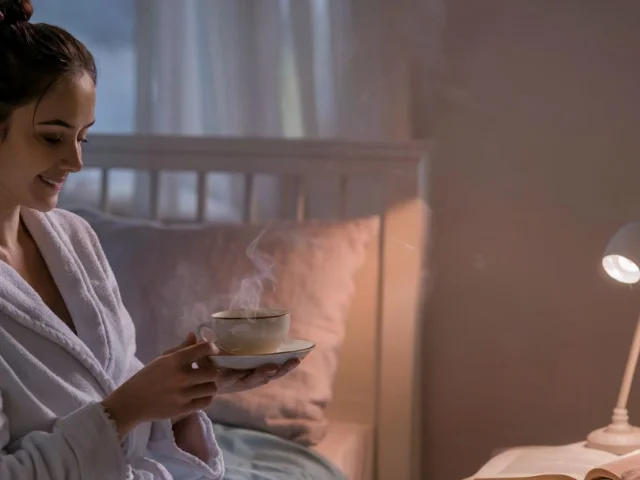
Remember, quality sleep is not a luxury; it’s essential for your health, happiness, and overall well-being. By prioritizing sleep and incorporating herbal remedies into your lifestyle, you’re not just investing in a good night’s rest; you’re investing in a healthier, more vibrant, and more fulfilling life.
Sweet Dreams Await
So, go ahead and brew a cup of chamomile tea, diffuse some lavender oil, or simply take a few deep breaths. Allow the gentle embrace of nature to lull you into a deep and restorative sleep. Sweet dreams!




